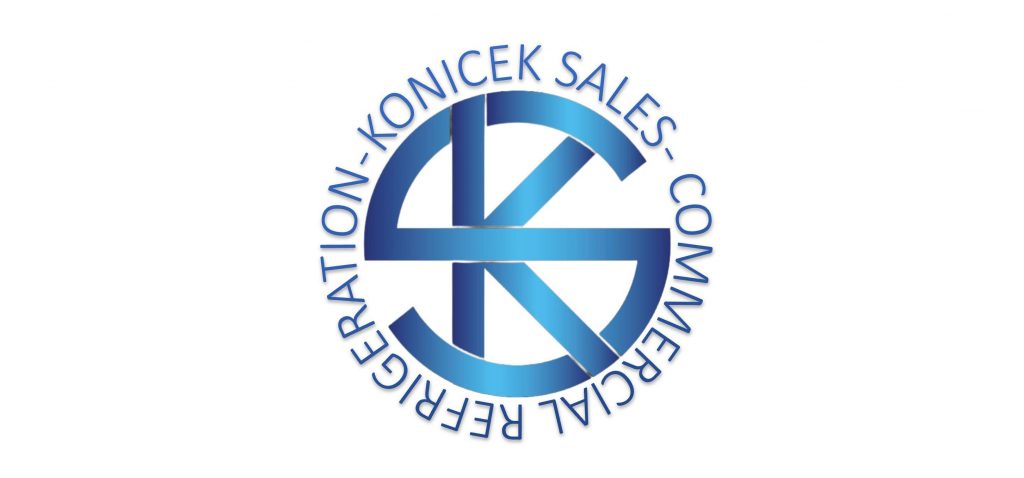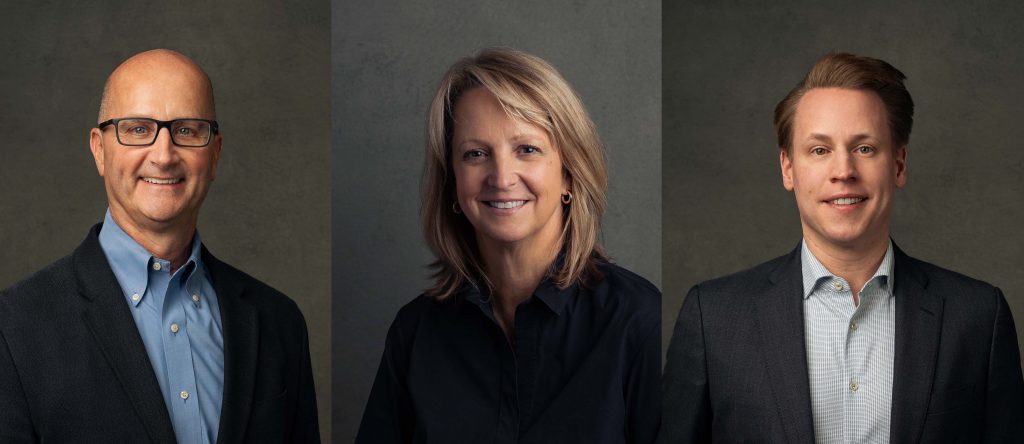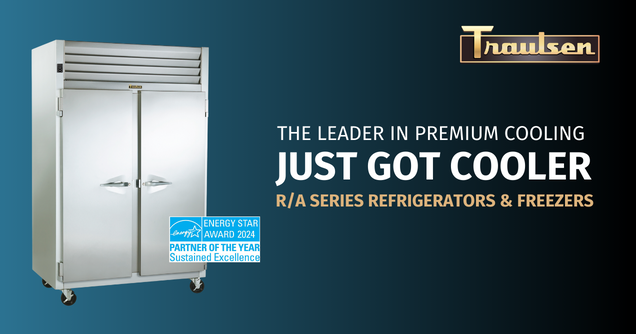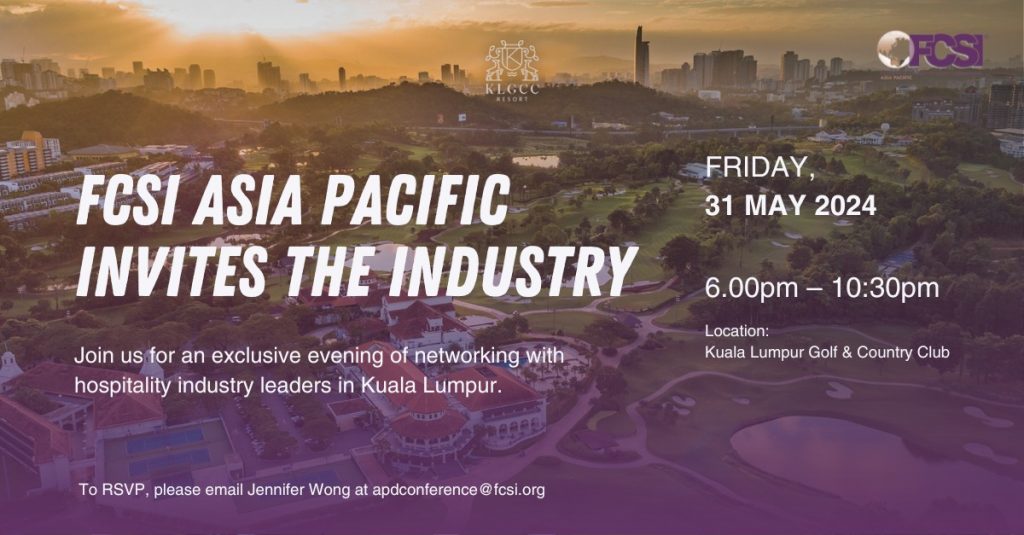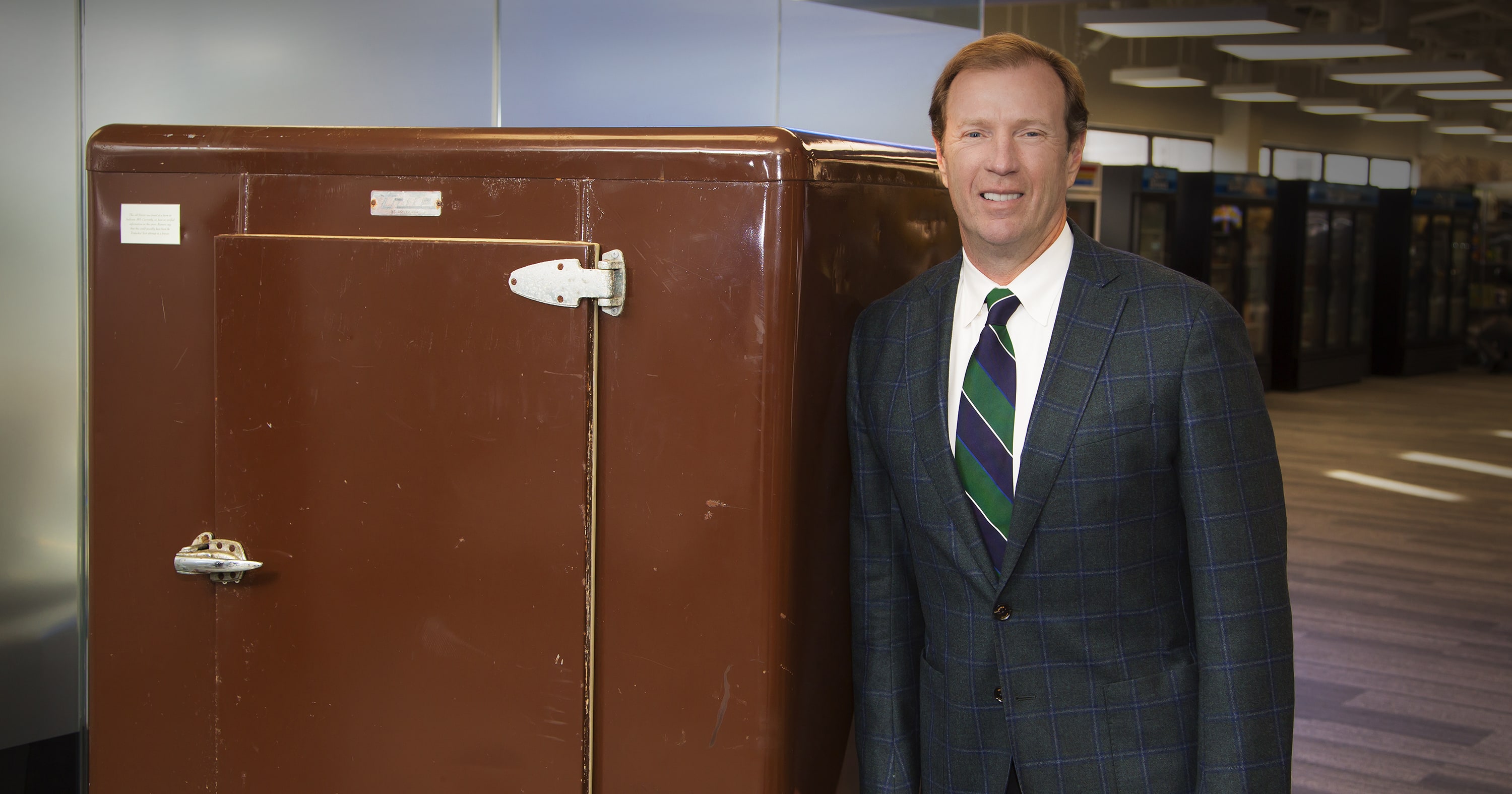
True is a household name in the food and beverage industry. In fact, the story of the little refrigeration company that made it big can be compared to any classic, rags-to-riches American business story. But did you know that every one of their products is made in the US?
During last year’s presidential campaigns, there was much talk about bringing back American manufacturing, but True has been doing that for over 70 years.
“I’m very proud of the fact that we took this strategy instead of moving to another country and, to this day, this continues to give us a tremendous competitive advantage,” says Steve Trulaske, the third-generation owner of True.
An American business story
It all started with a Second World War veteran, a handful of hard-earned cash, a bright idea from a night at the bar and a dream.
The year was 1945. Bob (Robert J.) Trulaske – Steve’s father – came back from the war having saved up $10,000 from piloting planes and playing poker. The first in his family to go to college (the University of Missouri), Trulaske was able to combine his capital and business education to put into motion his own father Frank’s lifelong dream of starting his own business.
A tool and die maker who was working for a bakery making ovens at the time, Frank had the bright idea – on a night out in a bar – to translate electric-powered refrigeration, which was just coming into the home at the time, into commercial use for restaurants and bars. Together, with the help of Bob’s brother Art, the family poured their funds and efforts into making some of the first commercial refrigeration cabinets in the backyard of their home in Wellston, Missouri.
They spent $5,000 building 11 upright freezers for meat storage. After a few months they had only sold one freezer and the family was ready to shut down the whole operation until president Harry Truman declared meat rationing and suddenly they sold all 10 freezers and developed a long backorder.
The name True and its connection to Truman was just a coincidence; Steve’s mother Geraldine suggested dropping the ‘laske’ from the firm’s name and a brand was born.
“By 1948 they were able to sell $120,000 of refrigeration equipment, which is the equivalent of $1.2m today,” says Trulaske. Still, the family dealt with enormous economic issues. There was a big recession in 1949 and sales dropped to $58,000. But because the family was so frugal, they were able to survive.
“My father and mother lived with my grandfather and grandmother to save money and my mom’s secretarial salary from Wagner Electric helped fund the company during that time,” says Trulaske. “That’s one of the most important lessons I’ve learned from my family – always keep your finger on the cash register. ”
By the early 1950s, True’s relationship with 7UP started to really take off. Back in 1948, a 7UP salesman had noticed one of the beverage coolers at a neighbourhood bar, and after finding out it didn’t require an expensive block of ice, he had to know who built it. In 1948, the 7UP company purchased its first order of True roll-top bottle coolers. But the next game changer was the development of trademarked, horizontal bottle coolers for 7UP and eventually other companies like Coca-Cola and Pepsi. With business beginning to flourish, the Trulaske family was able to move production of their roll-top bottle coolers and freezers to a multi-storey warehouse on Pine Street in downtown St. Louis.
True evolves
It was Pepsi who came to True in the 1950s with the proposal to develop a vertical glass door display refrigerator – something other companies had brought up but were not producing just yet.
“This was all new technology of the day,” says Trulaske. “We didn’t have the sophisticated test labs we have today, but we did have business in Puerto Rico. The idea was to build and ship the glass door prototypes there and if they worked in the hot and humid climate with corrosive salt in the air, they would work anywhere. The plan was a success and sales flourished there and in the Caribbean.
It was revolutionary – taking a horizontal and turning it into a vertical glass door unit that could be more easily accessed by consumers and displayed the product better. This would also mark the start of True’s international expansion that would later grow, thanks to Steve. Foodservice was next.
In the early 1970s, after Steve’s older brother Robert Trulaske, Jr. graduated from his father’s alma mater, Bob Trulaske gave him a new mission to go into the foodservice industry with the idea of making refrigerators and freezers for restaurant and hotel kitchens. “There was a ton of competition at the time and the last thing the foodservice world needed was another refrigerator,” says Trulaske.
As it was, Bob and his son displayed their new products at the NRA show in 1972, only to have their fears realised; everyone still saw them as a company making coolers for Coke and Pepsi.
But Robert, Jr. was up for the challenge. “My brother did an incredible job with that division; he built a sales force who led product development and worked closely with my father,” says Steve Trulaske.
Throughout the 1970s, 1980s and 1990s, True continued to see steady growth, both in beverage and in food. And it was True’s insistence on using only the most durable, highest quality materials that kept the brand continuing strong. Case in point: Trulaske bought a 1958 True Pepsi bottle cooler for $1,200 on eBay a couple years ago for nostalgic use at the office. It’s still going strong.
The 1990s were great for the company, and this culminated in a move to have healthier beverages and new food choices. The industry moved on from 1970s QSRs like Burger King and Pizza Hut, to Subway and Quiznos and other sandwich chains looking to expand their cold beverage and fresh food merchandising and storage. “We couldn’t build our products fast enough,” says Trulaske.
Since 1984 the company has continued to expand its factory and office space at a rate of 100,000 sq ft every two and a half years. The largest addition to date came in 1998 when True opened up a new, 638,000 sq ft office and warehouse space that would become the company’s O’Fallon, Missouri, headquarters. Today, True manufactures over 900 different types of refrigerators and freezers – and foodservice, Trulaske says, is the bedrock of the company’s domestic and international business.
Steve’s story
Trulaske puts it bluntly – he wanted absolutely nothing to do with the family business while growing up. “I was really into sports – I played football in college – and wanted to get into sports administration,” he says. The running back and slot receiver at DePauw University enrolled in Ohio State University’s one-year, graduate-level programme in that field. After a little taste of the sports business through an internship with St. Louis Cardinals, the former football team, reality set in.
“It wasn’t what I thought it would be,” Trulaske says. “To get anywhere you had to be an owner, coach or player and I wasn’t any of those.” He went back to school to do his MBA, falling in love with business and the worlds of finance and marketing. After spending a semester in Germany, he also fell in love with international business.
So when Trulaske’s father asked him to join the family business in the 1980s, he was able to carve out a job for himself that would play to his passions and strengths: growing True’s international presence.
For 10 years he flew around the world. He followed leads through Coca-Cola and other customers to build business in Spain, Korea, Canada and elsewhere. Today, True has offices in Germany, UK, Chile, Mexico and Sydney, Australia, exporting from its manufacturing base in St. Louis to 100 countries. Lately, things are heating up in the Middle East and Africa.
Maintaining the same dedication to quality and service continues the True brand image – in the US and abroad. “When we go to a new place, we’re still all about good service,” says Trulaske. “Our goal is to fix a cooler in Singapore as fast as we do in St. Louis.”
For 25 years, Trulaske continued, working with his brother to grow the foodservice business abroad. But things changed when Robert, Jr. passed away at the age of 58 in 2008 after a long health battle. As the brothers’ father had already died at age 86 four years prior, Trulaske was suddenly the new leader of the family business.
It was an emotionally challenging time. Trulaske says he relied on the talented team he and his brother had built to keep True going strong, and become even stronger.
True’s green progress
Over the years, innovation, product development and international expansion – in sales, not manufacturing – have been at the core of True’s explosive growth over the last several decades, and continue to drive the business forward amid increasing competition.
“If we don’t innovate we’re going to get crushed,” says Trulaske, who has always revered Apple’s Steve Jobs, the modern day godfather of innovation in business leaders’ eyes. “We are constantly taking our existing products and re-engineering them and improving them. And when we see new technologies coming down the pipe we get excited to think about how we can incorporate them.”
This has led to better cabinet design, a re-engineering of specs about five years ago, new curved glass displays similar to the “beautiful cases” developed by Italian companies, a partnership with Kroger to create new door merchandisers, an expansion into the residential segment and more.
Perhaps the most marked innovation True has led in recent years is its push toward sustainability, and Steve Trulaske has been at the forefront of it all. In fact, energy efficiency and green refrigeration was something Trulaske pushed with his father as far back as the 1980s, before there was much talk about it in the industry. So it has helped that he was way ahead of his time.
“We dropped KW consumption dramatically 10 years ago,” Trulaske says. “But now we’re faced with the tightest standards ever.”
Trulaske is referring to the Department of Energy’s new refrigeration standards for energy consumption, which take effect in March 2017. “Some of their standards have new energy requirements that have dropped as much as 50%,” he says. “By March 27, every True refrigerator and freezer will be ready.”
In 2014, True partnered with Missouri’s Brightergy to design and install solar power systems on 23 of its buildings, reducing carbon emissions by a whopping 1,176,717 pounds per year. True has also made huge strides in recycling.
There are benefits to “going green”. It has helped True stay ahead of its competition and open new doors. McDonald’s had worked with True around the world, but never in the US until the refrigeration company became one of the first in America to migrate to natural refrigerant R290, a purified propane. A majority of True refrigerators and freezers will be converted to hydrocarbons by next year.
As a next step, now the company has been putting more resources toward exploring R290 propane in anticipation of the EPA’s phase out of HCFCs. Already big in Europe, R290s hadn’t been explored here, because they weren’t approved for manufacturing, until True and a handful of other companies began petitioning the EPA for their use.
“You go out of business if you don’t get these regulatory needs squared away with the DOE and the EPA,” says Trulaske. “This has been a huge focus and investment for us.”
All this has also played well for the company when it comes to recruiting and retaining new talent and boosting employee morale. “The new and 20-something employees coming to True love this story and want to be part of a sustainable company,” he says.
The future of foodservice
No one in this industry can deny how fierce the competition has become. Even on a global level, True has had to fight for its place.
“We’re USA-made but we do feel tremendous competition from international manufacturers and we have to be on our game,” says Trulaske. “Twenty-five years ago most of our competitors were not around. Now we have competitors from Poland, Brazil and Asia.”
This is the key thing Trulaske’s father taught him – never shy away from or underestimate the competition; instead, embrace innovation.
“We may be good, but we never take anything for granted,” says Trulaske. “We have tremendous respect for competition. To me, if you sit in your ivory tower and think everything is fine, you’ll go down.”
In the US, True has remained focused on the fast casual sector. “Innovative fast casual is where the game is today,” says Trulaske. “We’re seeing a lot of growth in catering to restaurants with smaller footprints.”
And, of course, continuing to streamline efficiencies and automation in manufacturing has helped True stay ahead.
“We are a vertically integrated manufacturer with a high volume of products so we can rationalise the investments we’ve made,” says Trulaske. “We could be a sheet metal fabrication centre or a glass insert manufacturer or a shelf manufacturer because we know we can build higher quality products in each of these areas compared to other manufacturers around the world.”
Using robots and introducing more automation has not led to the loss of manufacturing jobs – it has helped shift the workforce; lower level workers have trained to move up to higher levels, more technical positions. Instead of simply growing bigger, True is focused on growing leaner. That’s the key to maintaining its flexible manufacturing operations and fleet-footed approach as an American manufacturer and international company.
In 2015, the company celebrated 70 years of business excellence. True is staying true to its roots and continuing its American business story – making quality, durable equipment in the US with first-rate service. Now that’s patriotic.
Amelia Levin
….
Educating the next generation
On October 19, 2007, the University of Missouri changed the name of its College of Business to the Robert J. Trulaske, Sr. College of Business following a series of large gifts from Geraldine Trulaske in honour of her late husband. The college is the second largest academic division at the University of Missouri in Columbia.
Education has always been a huge part of the True culture. The company sponsors the Robert J. Trulaske Sr. Scholarship Program and Fund which gives priority and preference to children of True employees to help fund their education at the University of Missouri, Columbia. True also collaborates with educational institutions and has developed an extensive co-op programme of which over 150 college students have gained valuable skills in STEM fields, some of which have become True employees. “My father was all about communication and always encouraged an atmosphere where his employees could say what they wanted without fear of reprisal,” Trulaske says.
In 2007, Steve Trulaske gave back himself – donating funds to his alma mater DePauw University in support of the university’s international studies programme and to fund semesters abroad for first-year students. In 2012, he gave the commencement address to graduating students at the Mizzou, challenging them to be “the next great generation”.
True products throughout the years
1948 7UP roll-top
bottle cooler
1950 Royal Crown Cola cooler
1957 Glass Door Mechanisms (GDM)
1966 Coca-Cola flat-top bottle cooler
1966 Pepsi-Cola flat-top bottle cooler
1976 Direct draws and back bars
1982 The T-series
1985 Undercounters and worktops line
1986 Glass and plate chiller
1988 Sandwich/salad unit
1990 Pizza prep tables
1993 TSD Series
1994 TM Series
2001 TR Series
2003 Horizontal freezers
2003 Curved glass display cases
2003 Vertical air curtains
2011 STR STA STG
2012 Food prep units
2014 STM Series

